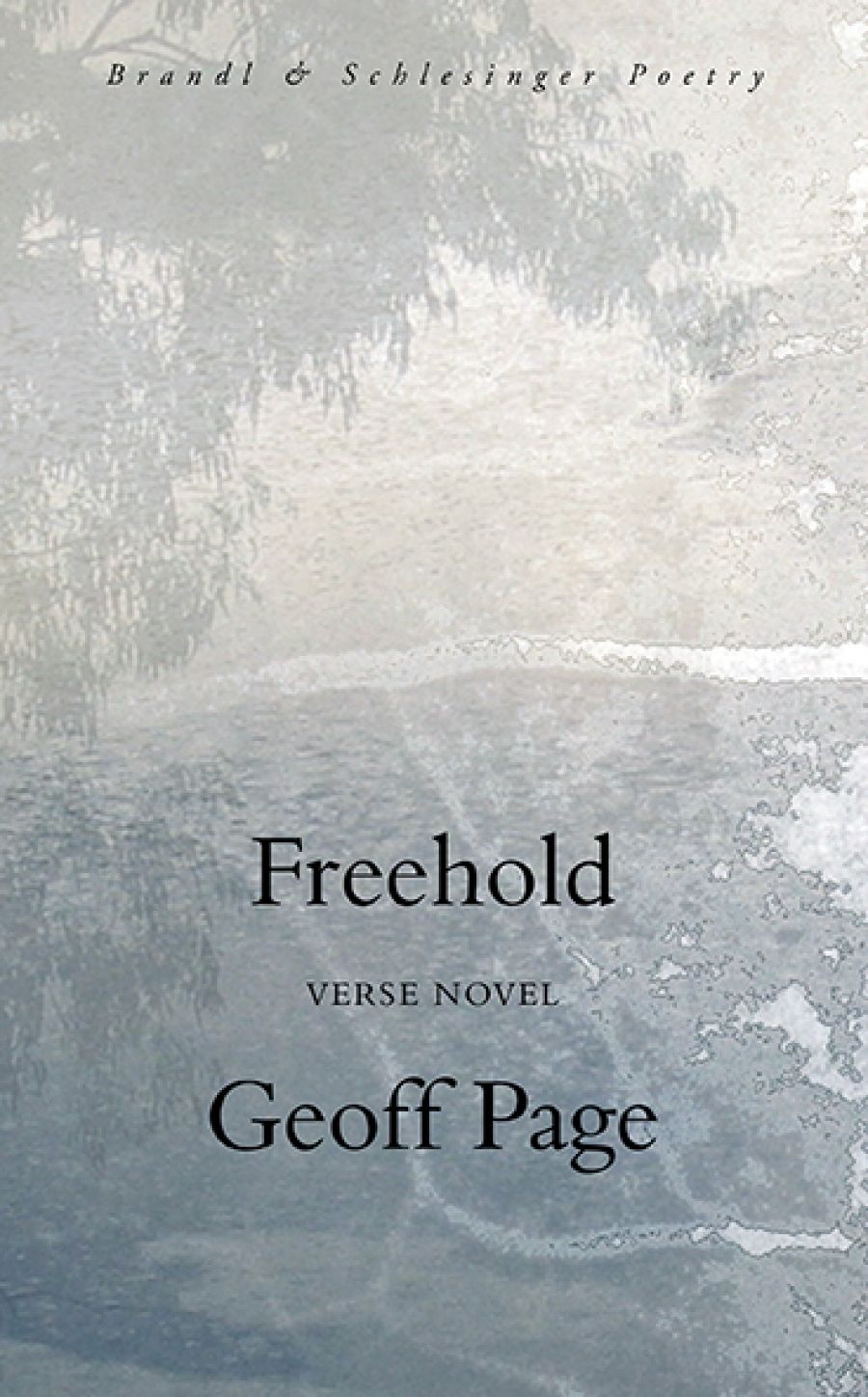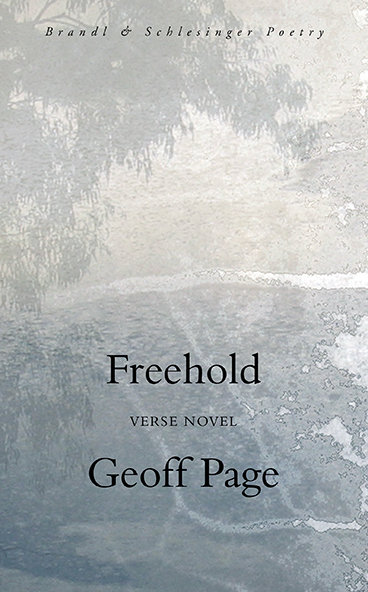
- Free Article: No
- Contents Category: Verse Novel
- Custom Article Title: Steady pools
- Review Article: Yes
- Article Title: Steady pools
- Online Only: No
- Custom Highlight Text:
Geoff Page’s third verse novel – a form which, if we are to believe the cover puff, he has ‘made utterly his own’ – takes a broad and topical look at the problem of reconciliation in Australia. Reaching back to the 1840s, his narrative opens with an English settler’s account of establishing a successful cattle station on the Clarence River. Edward Coaldale is a liberal with an en-lightened attitude towards the local indigenous people. Employing natives as stockmen and learning their language, he soon earns the suspicion of neighbouring pastoralists, who regard such behaviour as ‘soft’. Prematurely ill with cancer and lacking an heir, Coaldale attempts to bequeath ‘Kooringal’ to the Bundjalung tribe, but is thwarted by regulations insisting the property be left to a single person. He dies leaving it to the talented Jimberoo, who, before long, sells it on to a white family.
- Book 1 Title: Freehold
- Book 1 Subtitle: A verse novel
- Book 1 Biblio: Brandl & Schlesinger, $26.95 pb, 169 pp
- Book 1 Cover Small (400 x 600):

- Book 1 Cover (800 x 1200):

The story then jumps to the 1980s, with the focus shifting across river to ‘Whitby Downs’, a fertile stretch of land owned by one of the earliest freeholding families in the area. Lyle and Lyndall Whitby and their sons, Bill and Lawrie, receive a visit from Lyle’s brother Ray, an alcoholic black sheep of the family, who arrives from Melbourne, where he works as an historian, to look into the history of Aboriginal massacres. Striving to ‘counteract “The Great Forgetting”’, Ray locates evidence that records William Whitby, the original landowner, murdering three Aborigines, ‘a man, a woman and a child’, who, it is claimed, are buried on the property. All too conveniently, he chances to meet, in a pub, a descendant of Jimberoo called Tommy, to whom he relates his discovery. Between them, they manage to convince Lyle to erect a plaque in recognition of the murders, something to act as a ‘sign that history has happened’.
Seventeen years later, Bill and Lawrie have left the family station for thriving careers in Sydney: the first generation not to stay on the land. Against the wishes of their domineering grandmother, Hilda, who is eventually forced to move into a flat in nearby Grafton, they encourage Lyle to sell Whitby Downs, viewing it as no longer viable:
He wouldn’t put up much resistance.
These youngsters in their baggy suits
exuded expertise,
a different brand of Whitby sweat
one had to recognise.
The sale goes to a self-made millionaire and, not long afterwards, Ray makes one last visit to the property, despite having claimed formerly that its traditions mean nothing to him. In the narrative’s most moving development, he finally attempts to engage meaningfully with his heritage.
Page’s basic message in all of this is that, ultimately, land doesn’t belong to anyone; black or white, we are merely its custodians. It is significant that he should acknowledge the importance of a connection with place for both races, as, in the recent past, the fashionable tendency has been to dismiss the needs of whites on the grounds that they were wrong to invade in the first place. For the Whitbys, custodianship can only be earned by hard work: ‘It’s not enough to own the land. / You only can deserve it when / you’ve left your sweat upon it.’ This may not be quite as admirable as the approach of indigenous people, living in sympathy with their surroundings, but it nevertheless – Page seems to be saying – deserves to be recognised. The difficulty then lies in how to preserve a culture’s heritage when it comes into conflict with another. The poet doesn’t pretend to have a solution.
As was the case in Page’s last verse novel, Drumming on Water (2003), here the iamb predominates, and there are occasional rhymes. The writing can be lyrical:
he’d feel the pickets in his palms,
his two hands pressing down
as he’d absorb the downstream view,
the rapids and the steady pools,
the river trees bent down by floods,
the almost windless surface where
his future would be scattered.
Mostly, though, it is just flat, and over the course of 170-odd pages, this inevitably becomes a strain. Indeed, despite claims of admirers to the contrary, one wonders whether the genre is really suited to Geoff Page’s talents after all; somehow, fatally, it seems to kill off any of the genuinely imaginative qualities that are clearly evident in his other work. For example, each of his characters conforms to a stereotype: the alcoholic historian living in Carlton; the sons who are lured away from their true inheritance for wealth and ‘harbour views’; the grasping wives. Most worryingly, they all speak in the same assiduously unremarkable way. From a writer who can obviously tell a story, drawbacks like these are a sign of wasted potential. The novel, tout seul, with its greater freedoms, might have been the answer.


Comments powered by CComment